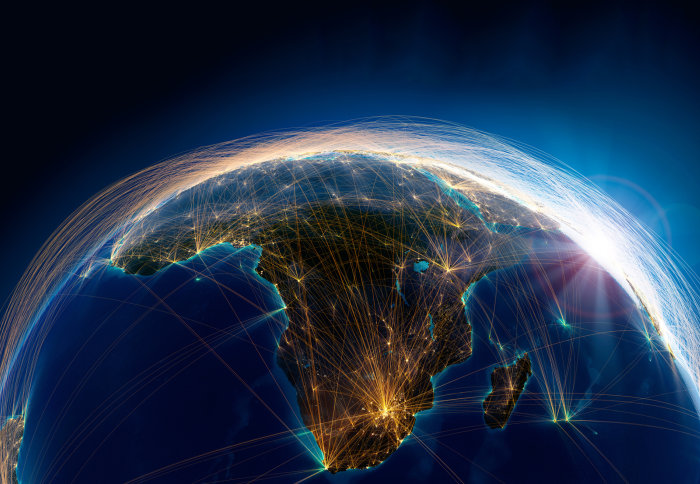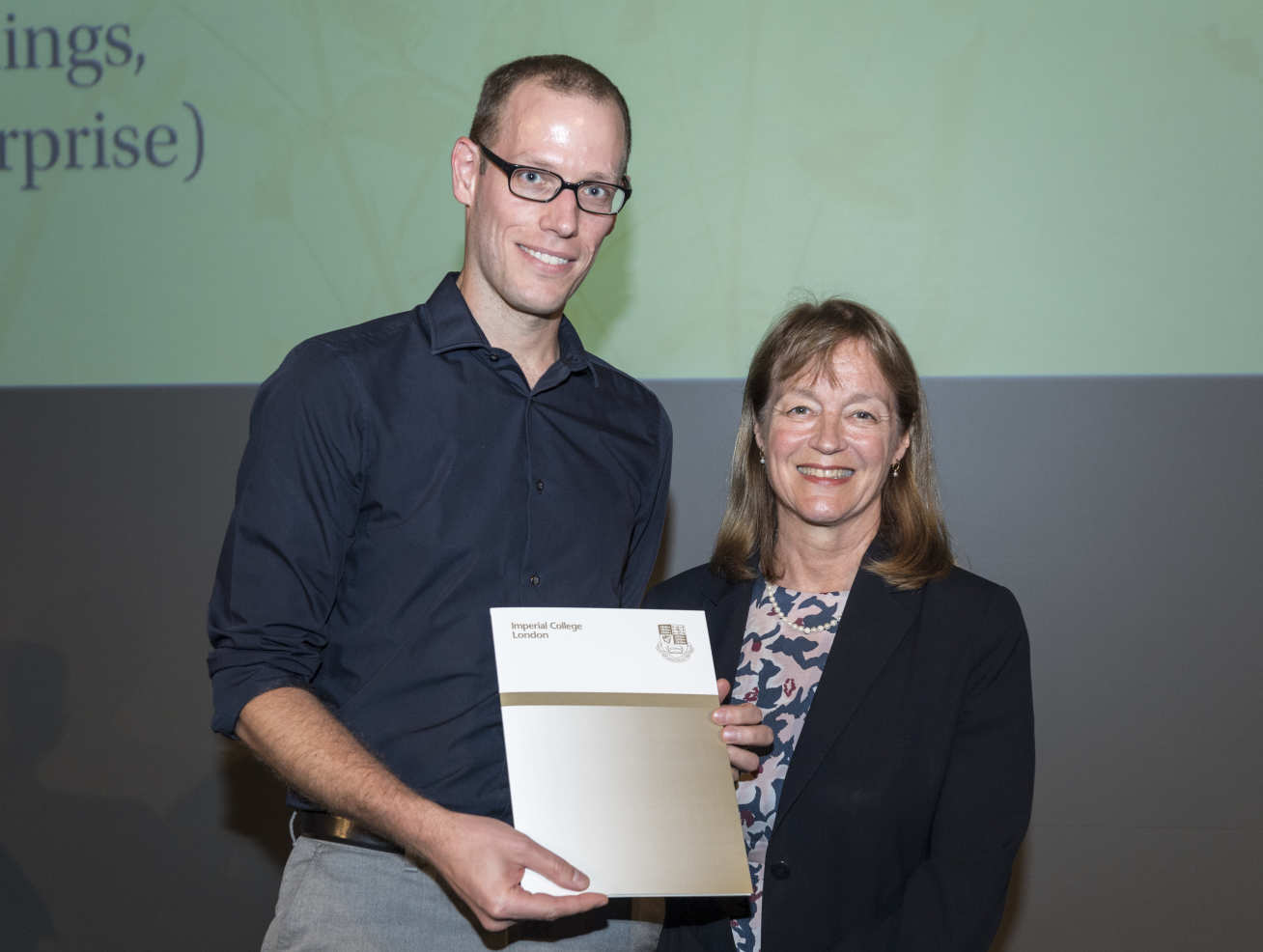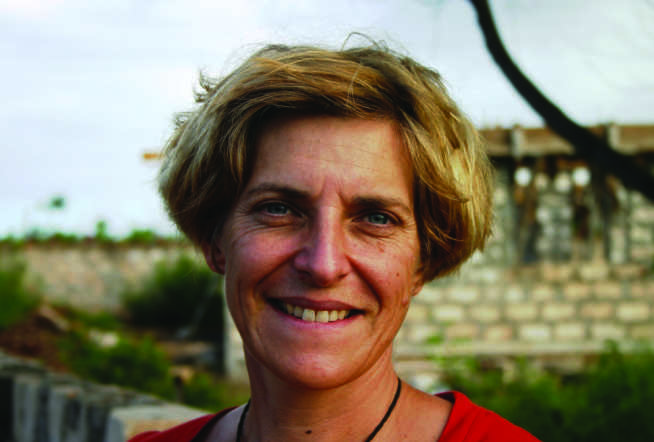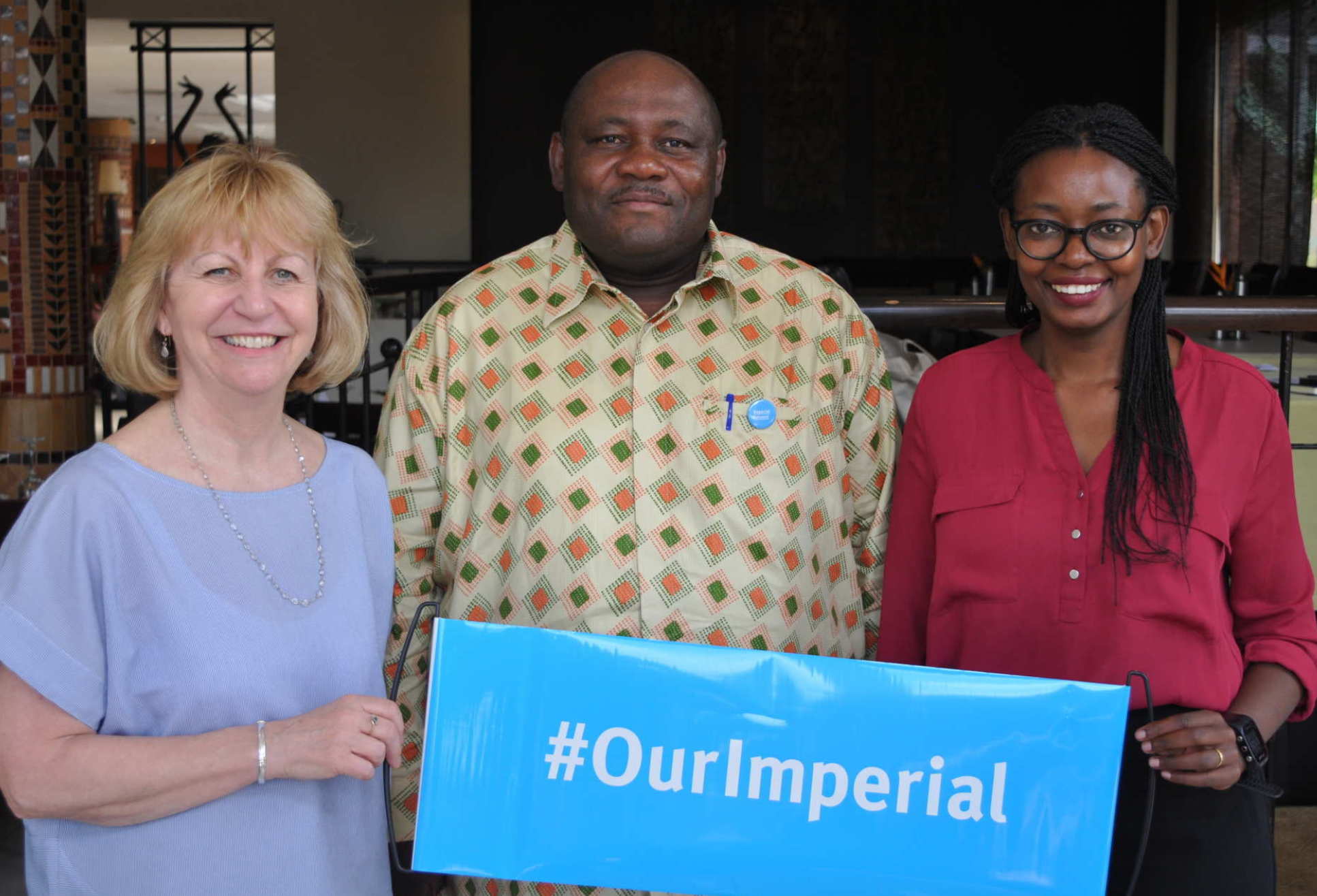How a Masters programme in machine intelligence is closing an African tech gap

An Imperial lecturer is collaborating with a Rwanda-based African institute to unlock the continent’s potential as a hub for machine learning skills.
The first dedicated Masters degree for machine intelligence in Africa is launching in September with backing from tech leaders Google and Facebook.
The African Masters of Machine Intelligence (AMMI), delivered by the African Institute for Mathematical Sciences (AIMS), will offer students in African countries the opportunity to keep pace with the rapidly developing machine intelligence sector.
Dr Marc Deisenroth, a Lecturer in Statistical Machine Learning from Imperial’s Department of Computing, is seconded to AIMS and will be a lecturer on a new course on “Foundations of Machine Learning”.

Machine learning is the driving force behind the recent advances in data science and artificial intelligence. It also underpins the modern foundations of smart technology – from Siri, the personal iPhone assistant, to the predictive behaviours of websites such as YouTube.
Sharing Imperial’s education and research expertise
Dr Deisenroth explained the importance of Africa’s emerging role in the machine learning community: “The widespread adoption of technologies such as mobile phones shows that there is a thirst for technology in Africa. We look forward to seeing what innovations African technologists come up with in the future to help spur on the development of AI, which will increasingly become more important in all our daily lives.
“We strive to create a global community of academics and entrepreneurs to tackle local challenges. Africans will also contribute greatly to the global machine learning and AI community through creative thinking, technological skills and enthusiasm. I hope for mutually beneficial partnerships between African institutions, such as AIMS, and Imperial. To get this off the ground, I'm currently looking for sponsors and supporters to establish an academic exchange program that is cost neutral to students.”
Alongside educationalists, Imperial has dozens of researchers working across Africa in a diverse range of health and environmental programmes.

One such researcher, Professor Kathryn Maitland, is Director of Imperial’s Centre of African Research and Engagement (ICCARE) at the Institute of Global Health Innovation, and has been based in Kenya for the last 15 years.
Her research group are investigating severe malaria, bacterial sepsis and severe malnutrition in children. Her team conducted the largest trial of critically ill children ever undertaken in Africa.
Future collaboration
The College works with partners in Africa across a broad range of projects. Its top collaborating countries in terms of joint publications are South Africa, Kenya and Uganda.
As part of our plans to collaborate more closely with African nations, Imperial’s Vice President (International) Professor Maggie Dallman recently visited Ghana and Kenya to strengthen collaborations and meet alumni.
During the trip Professor Dallman visited the Association of African Universities, the University of Ghana, and in Kenya visited the African Population and Health Research Centre, the African Academy of Sciences, the Ministry of Education, IBM, and a variety of centres of research excellence. Professor Dallman also attended the first ever alumni events in Accra and Nairobi.

Professor Dalman’s visit and Dr Deisenroth’s secondment are just two examples of Imperial and African institutions sharing ideas.
In 2017 three Imperial researchers travelled to South Africa to play an integral part in the first ever Deep Learning Indaba. An indaba is a Zulu word for a gathering or meeting. These meetings are held throughout Africa and serve several functions: to listen and share news of members of the community, to discuss common interests and issues facing the community, and to give advice and coach others. Students from Africa and further afield came together to listen, learn, and share news about the latest developments in AI.
Dr Deisenroth said: “Currently, the African continent has low participation in global AI research and development, although it has the skills and energy to take full advantage of these technologies. The aim is to stimulate the participation of Africans students, academics and entrepreneurs within the research and innovation landscape surrounding deep learning and machine learning.”
Article text (excluding photos or graphics) © Imperial College London.
Photos and graphics subject to third party copyright used with permission or © Imperial College London.
Reporter
Murray MacKay
Communications Division